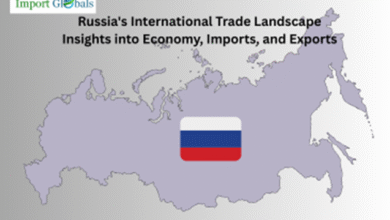Settle In: Navigating Thailand’s Long-Term Visa Pathways

For many, a trip to Thailand is a vibrant explosion of senses – the sizzle of street food, the intricate beauty of temples, the warmth of its people, and the breathtaking natural landscapes. It’s an experience that often leaves visitors captivated, dreaming of more than just a fleeting holiday. If the idea of truly “settling in” to the rhythm of Thai life calls to you, transforming a short visit into an extended stay, then understanding Long term visa Thailand pathways is your next crucial step.
Gone are the days when a cycle of tourist visa extensions and border runs was the primary strategy for extended stays. While those short-term options still exist for brief visits, Thailand has increasingly streamlined and formalized its long-term visa system, welcoming foreign residents for specific purposes. This guide will help you navigate these pathways, ensuring your extended stay is both legitimate and peaceful.
Why “Settle In” with a Long-Term Visa?
Choosing a dedicated long-term visa over short-term options offers significant advantages for those aiming to establish a temporary home in Thailand:
- Legal Security and Peace of Mind: This is paramount. A proper long-term visa ensures you are legally residing in Thailand, free from the constant worry of overstaying or issues with immigration.
- Stability for Daily Life: With a long-term visa, everyday tasks become much smoother. You can more easily open a bank account, sign long-term rental agreements, obtain a Thai driving license, and access other essential services.
- Deeper Cultural Immersion: Living in Thailand for an extended period allows you to transcend the tourist bubble. You can truly learn the language, build relationships with locals, explore lesser-known areas, and participate in community life.
- Reduced Administrative Hassle: While the initial application requires effort, it removes the recurring need for visa extensions or border runs that consume time and money.
Your Pathways to Settling In: Key Long-Term Visa Categories
Thailand offers several primary Non-Immigrant visa categories designed for extended stays. The path you choose will depend entirely on your reason for wanting to reside in Thailand.
1. Non-Immigrant “O-A” (Long Stay) Visa: For Retirees
This is the most common and clear pathway for foreign nationals aged 50 and above who wish to retire in Thailand.
- Eligibility: Must be 50 years old or older.
- Financial Proof: Crucial. You need to demonstrate financial capability, typically via 800,000 THB in a Thai bank account (held for at least 2 months prior to application), or a monthly income/pension of at least 65,000 THB, or a combination.
- Health & Background: Requires a medical certificate and a clean criminal record.
- Duration: Initially issued for 90 days, it can be extended to a full year at Thai Immigration and is renewable annually.
- Ideal for: Those seeking a peaceful, affordable retirement in a warm, welcoming country.
2. Non-Immigrant “O” (Other) Visa: For Family & Specific Purposes
This versatile visa category covers a range of situations, particularly for individuals with family ties to Thailand.
- Eligibility & Use Cases:
- Spouse of a Thai National: If you are married to a Thai citizen.
- Parent of a Thai Child: If you have a Thai child (under 20 years old).
- Dependent of a Long-Term Visa Holder: Spouse or child of someone holding a Non-Immigrant B (Work), O-A (Retirement), or ED (Education) visa.
- Volunteer Work: For those undertaking legitimate, unpaid volunteer work with registered organizations.
- Key Requirements: Proof of relationship (marriage/birth certificates) and sufficient financial support (amounts vary by specific sub-category).
- Duration: Typically 90 days initially, extendable to a full year depending on the specific purpose and ongoing fulfillment of requirements.
- Ideal for: Maintaining family unity, supporting children, or engaging in recognized non-profit activities.
3. Non-Immigrant “ED” (Education) Visa: For Learners & Cultural Enthusiasts
If your desire to settle in involves personal development or cultural immersion through study, the ED visa is your route.
- Eligibility: Enrollment in an accredited educational institution or program in Thailand.
- Common Study Types: Thai language courses, Muay Thai training, university programs, or other vocational courses.
- Key Requirements: An official acceptance letter from the school/university and proof of financial capability to support yourself.
- Duration: Initial 90-day visa. Extensions are granted based on the length of your course and consistent attendance, typically for 3-6 months at a time, up to one year per course.
- Ideal for: Those passionate about learning Thai, pursuing higher education, or mastering a new skill while living in Thailand.
4. Non-Immigrant “B” (Business/Work) Visa: For Professionals
This is the mandatory visa for anyone intending to work or conduct legitimate business in Thailand. It’s the essential first step before applying for a Work Permit.
- Eligibility: Having a job offer from a Thai company, being a teacher at a recognized institution, or establishing a business presence.
- Key Requirements: An invitation/sponsorship letter from the Thai employer/company, company registration documents, and often your educational qualifications and professional resume.
- Duration: Initially 90 days. Once you secure your Work Permit, this visa can be extended annually for the duration of your employment.
- Ideal for: Foreigners seeking employment opportunities in Thailand or those establishing legitimate businesses.
5. Thailand Privilege Card (Elite Visa): The Premium “Settle In” Option
For those who prioritize seamless long-term residency and a host of exclusive benefits, the Elite Visa offers a premium pathway.
- Eligibility: Membership requires a one-time fee, ranging from 500,000 THB to 2,500,000 THB+ depending on the chosen package and duration (5 to 20 years).
- Key Features: No age or specific income requirements (beyond the membership fee), multiple entry privileges, expedited immigration, assistance with 90-day reporting, and exclusive concierge services.
- Ideal for: High-net-worth individuals, frequent visitors, or anyone who values convenience and a hassle-free long-term stay in Thailand.
Crucial Tips for Navigating Your Thai Long-Term Visa:
- Apply from Abroad: Most non-immigrant visas generally require application at a Royal Thai Embassy or Consulate in your home country or a country where you hold legal residency before you arrive in Thailand.
- Meticulous Documentation: Thai immigration is strict about paperwork. Ensure all documents are accurate, complete, and translated (if required) before submission.
- Understand 90-Day Reporting: Most long-term visa holders must report their current address to Thai immigration every 90 days. This is a vital compliance step.
- Re-Entry Permits: If you plan to leave Thailand and return while on a single-entry long-term visa, you must obtain a re-entry permit from immigration before your departure to avoid your visa being cancelled.
- Seek Expert Help: For complex situations, or if you’re unsure about specific requirements, consider consulting a reputable Thai visa agency or legal professional.
To truly “settle in” and experience the depth of Thailand, moving beyond the tourist stamp is not just advisable, it’s essential. By understanding and carefully navigating these long-term visa pathways, you can unlock a fulfilling and legitimate extended stay, allowing you to immerse yourself fully in the magic of the Land of Smiles.



